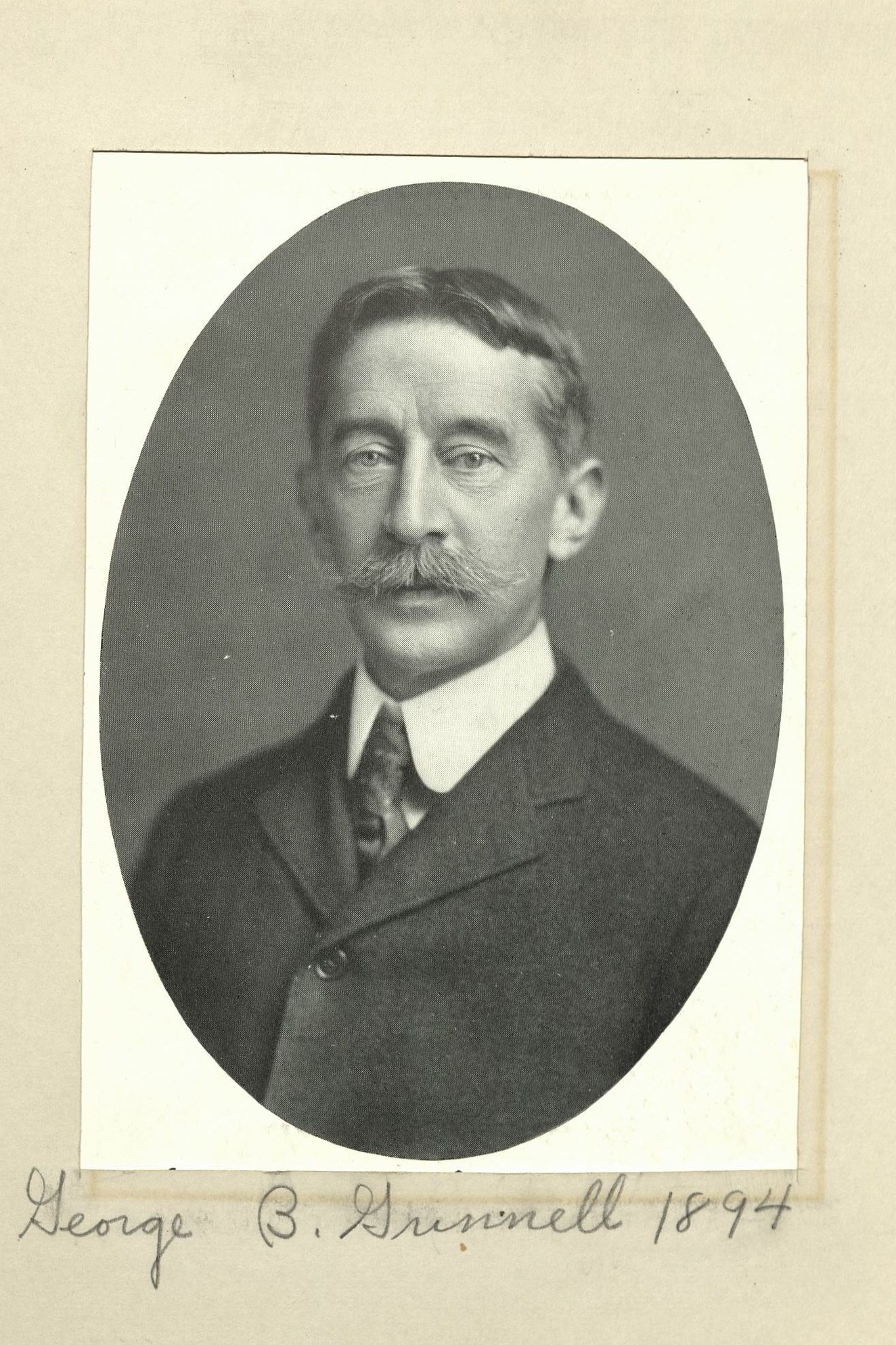Editor
Centurion, 1894–1938
Born 20 September 1849 in New York (Brooklyn), New York
Died 11 April 1938 in New York (Manhattan), New York
Buried Woodlawn Cemetery , Bronx, New York
, Bronx, New York
Proposed by Charles T. Barney and Edward L. Burlingame
Elected 5 May 1894 at age forty-four
Century Memorial
At the age of twenty-one, within six years after the end of the Civil War, George B. Grinnell had become part of the unmapped West and a familiar of Indians on the Great Plains. Thereafter, for the Peabody Museum at New Haven he made repeated expeditions into hostile country to collect vertebrate fossils. In 1874 General Custer took him as naturalist on an expedition to the Black Hills and two years later invited him again. Only the chance of academic duties that held Grinnell at the Peabody Museum saved him from the massacre of that fateful year.
In the ’70’s and ’80’s, when “the fallacy of the inexhaustible” was most prevalent, Grinnell became the great pioneer of conservation, and the rest of his life was devoted to creating the great sanctuaries of the Yellowstone and Glacier National Parks. Through the admirable magazine that he edited from 1876 to 1911, Forest and Stream, he constituted himself a center of sage counsel and information of abiding value in the field of natural history as well as of practical information for the hunter, trader, and trapper. He was founder of the first Audubon Society, a member of the Blackfoot tribe, and a member of the New York Zoological Society from the beginning. Because of his long friendship with President Roosevelt and his distinguished services for conservation the Roosevelt Medal was awarded to him in 1925. In presenting the medal President Coolidge said to him:
“Few have done so much as you, and none has done more, to preserve vast areas of picturesque wilderness for the eyes of posterity in the simple majesty in which you and your fellow pioneers first beheld them. In Yellowstone Park you prevented the exploitation and, therefore, the destruction of the national beauty. The Glacier National Park is peculiarly your monument.”
A Centurion said of him at his passing:
“Aside from Grinnell’s prophetic vision, his forthrightness, his scholarship in the fields of zoology and Indian ethnography and the drive that empowered him to carry so many causes to successful conclusion, his outstanding personal characteristic was that of never-failing dignity, which was doubtless parcel of all the rest. To meet his eye, feel his iron handclasp or hear his calm and thrifty words—even when he was a man in his ninth decade—was to conclude that here was the noblest Roman of them all.”
Geoffrey Parsons
1938 Century Memorials

